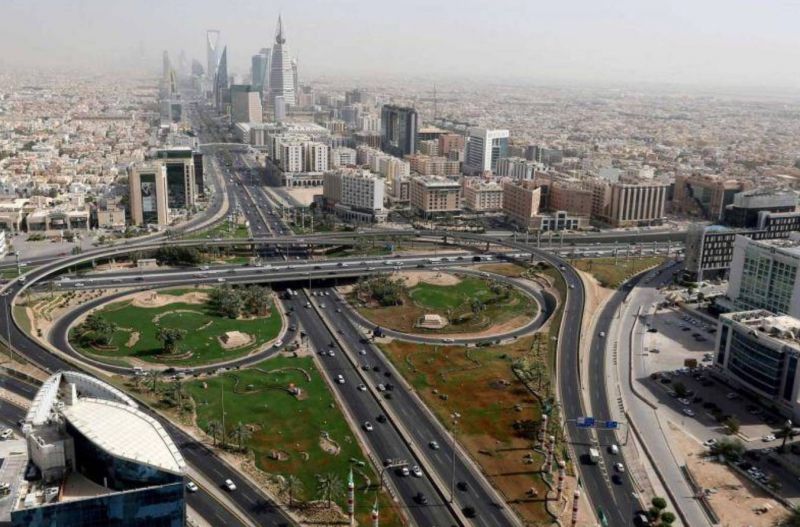
In Riyadh, 100,000 new homes should be built by the end of 2023. (Credit: AFP file photo)
At the end of March, Abdullah Alhammad, CEO of the Real Estate General Authority (REGA), announced the finalization of a draft law allowing non-Saudis to own private property in the country, including in the holy cities of Mecca and Medina. The law permits foreign investors to own residential, commercial and agricultural property across the kingdom. This includes hotels and theme parks.
Until now, land ownership in the Kingdom was reserved for its nationals.
Activities of non-Saudi nationals — including those from other Gulf Cooperation Council (GCC) countries — are heavily regulated, and holding land requires a license from the Ministry of Investment.
Ownership is also open to foreigners in the country’s four special economic zones — Riyadh, Jizan, Ras al-Khair, and King Abdullah Economic City —, while being subject to the regulations of these cities and the Special Zones Authority.
Forced into a holding pattern
The announcement of the draft law comes at a time when demand for property has halved, due to soaring market prices caused by a housing shortage in Saudi Arabia.
According to a survey by Knight Frank and YouGov, house sales in the Kingdom plummeted from 84 percent to 40 percent in just one year.
House prices rose by 45 percent in the past two years and real estate transactions dropped by 34 percent in Riyadh and 16 percent in Jeddah between 2021 and 2022.
“With villa prices in Riyadh rising by 45 percent over the last two years to over SAR5,000 per square meter — the highest level in at least seven years — the dream of home ownership, as well as the desire to own a second home is forcing households into a holding pattern,” said Faisal Durrani, head of Middle East Research at UK real estate consultancy, Knight Frank, in an interview with Arabian Business.
The goal of achieving 70 percent home ownership for the country’s nationals by the end of the decade seems to be slipping away for now.
Saudi Arabia is therefore counting, in part, on expatriates to fill the void. Especially as it is working on $1 trillion in real estate projects and plans to build 1.3 million homes across its Kingdom by 2030.
Saudi Arabia also intends to direct land investment to its new megacities like the Red Sea project NEOM, and Qiddiya, which is projected to be an international entertainment hub that will include a Six Flags theme park.
“With the developments that are planned, especially the giga projects, our expectation is that a lot of those will be priced above $1 million for every unit,” said Durrani.
Finally, The Kingdom would like Muslims around the world to buy property in Mecca and Medina, where foreigners are currently strictly prohibited from investing.
Riyadh vs. Dubai
The draft law comes amid growing economic competition between Gulf countries, marked by Saudi Crown Prince Mohammed bin Salman’s Saudi Vision 2030.
The Kingdom aims to take Dubai’s place as the preferred Gulf destination of foreign investors. The United Arab Emirates (UAE) has been a pioneer in opening up access to private property in the region.
In Dubai alone, the value of real estate owned by non-UAE nationals is at least $146 billion, according to the EU Tax Observatory.
Saudi Arabia said it will no longer sign contracts with foreign companies that do not have a headquarters in the kingdom after Jan. 1, 2024.
The oil-rich monarchy also opened four special economic zones offering competitive tax rates for businesses, as well as duty-free access to imports, production equipment and raw materials.
Similar measures were introduced in the UAE decades ago.
This article was originally published in L'Orient-Le Jour in French. Translation by Joelle El Khoury.